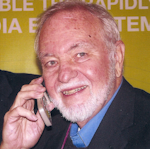This article is part of the Professional Advancement Series: Massive Open Online Content Resources
How do you keep up with technology or learn new subjects related to your career? If you’re the typical engineer, you’re an autodidact, or self-learner. You educate yourself as needed. Your sources are magazines like Electronic Design, webinars, conferences, and (of course) your endless internet searches.
These are effective up to a point, but some topics just require some more formal and in-depth learning. A college course or an expensive seminar may work, if available. However there is an alternative you may not have explored: MOOCs.
MOOCs are massive open online courses—web-based classes offered by major universities or educational companies who host them. Online courses have been around for decades, but the MOOC idea is relatively new.
The idea followed the success of what is considered the first MOOC course—one about artificial intelligence (AI) offered by a couple of Stanford University professors in 2011. More than 160,000 students enrolled. Since then, more schools have developed courses and a number of companies have been established to offer them. The breadth of subject matter is astonishing.
As for the courses themselves, they are college-level and mostly self-paced (meaning no time constraints). Many courses are free, but some have a small fee. Others are expensive. While you don’t get standard college credit, many offer certified completion credentials if you pass the exams and pay an extra fee.
The format is online lectures, videos or other presentations. All courses involve some reading assignments, and many require specific project completions. A few courses have lab requirements. If you need help, typically some can be had from the instructor by email.
Generally speaking, MOOCs are effective and competent. However, completion rates are very low—in the 7 to 12 % range depending upon the subject. The reason for this is that the student needs to be heavily motivated to get the knowledge. Self-learning is tough for most people, and it’s difficult to stick with a program even if you want to learn the subject. Unsurprisingly, they say that the completion rate increases for those who pay for the course.
I recently tried a MOOC. I was updating my book Electronics Explained and wanted to add some coverage of microcontrollers and programming. I needed to learn C programming, which I’d somehow managed to avoid all these years. I have done virtually all my microcontroller programming in assembler, which I still prefer, but C is by far the major embedded controller programming language.
I signed up for a C programming course through MOOC host Udemy. It was given by a professor from Valparaiso University. I chose this one over multiple C programming offerings because it offered lab projects using the Texas Instruments MSP430 MCU, with its LaunchPad development system. The course cost me $15 and the TI board was less than $20, plus free software.
The course consists of short lectures followed by quizzes and lots of programming exercises. Lots! Definitely a great deal of work. But that’s how one learns: It takes time and effort. Teachers don’t teach, you learn. Anyway, I did learn C. I’m still not good at it, but I can program my Arduino and MSP430 to do most basic things.
If you are looking for some continuing education, try a MOOC. Take a look at these three companies that offer many technology-related courses: Coursera, edX, and Udacity. (A complete list of offering companies and courses can be found here.)
In just a brief survey of each I found lots of courses on programming. Python is hot right now. Other popular topics are robotics, AI, and the Internet of Things (IoT). There are dozens of electronic courses. Try Kahn Academy for math courses.
Lots to consider. I enjoyed my course, but be forewarned: it is a bit of work, requiring a major time commitment. Good luck, and let me know how you like MOOCs.
This article is part of the Professional Advancement Series: Massive Open Online Content Resources


